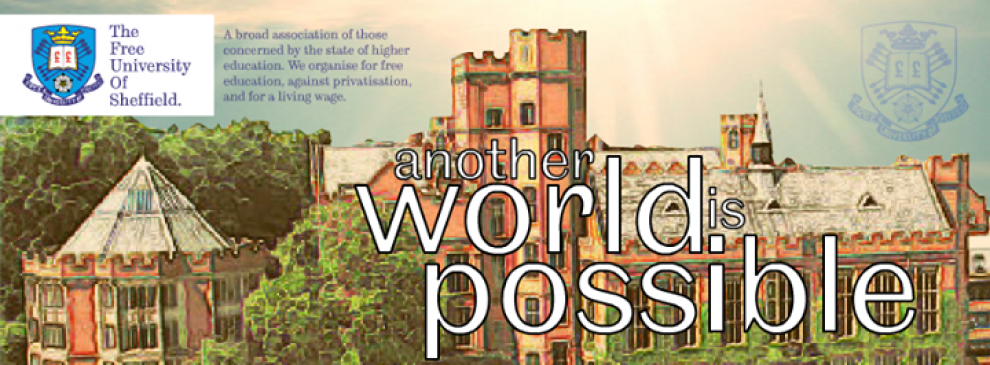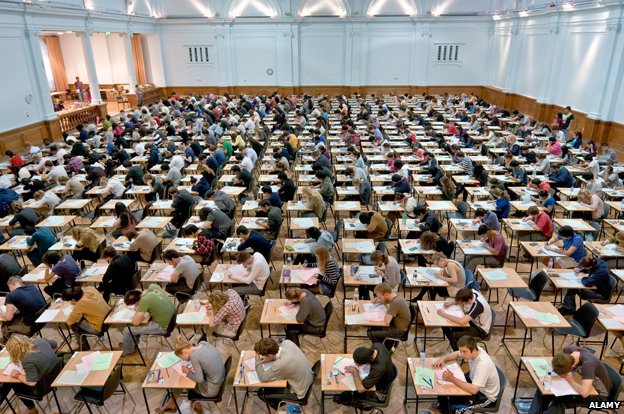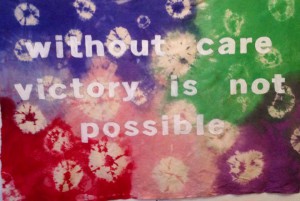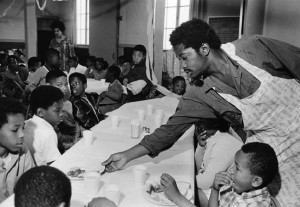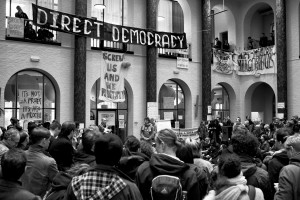The text of this article comes from a presentation delivered by one of our members–Josh Berlyne–to a Masters’ module in the English Literature department of the University of Sheffield, called “Theory as Potentiality – the Experience of the Possible”. Josh would like to apologise that the last two paragraphs were written in a rush.
Since we’re discussing “potentiality” in these seminars, and I’m neither an English student, nor am I trained in continental philosophy, I thought it might be most interesting, or should I say productive, to give my perspective on the matter from an activist’s point of view. I study History and Philosophy but, above all else, I consider myself an activist.
To properly understand the soup seminars, I think, you need to understand how the idea came to be. Last year, I took part in a module similar to this one, called “Radical Theory”. The form the module took was itself radical: there were no set texts, no lectures, no forced discussion. Instead, each participant sought to analyse a social or political crisis of their own choosing, with a view to theorising (and performing) an intervention into that crisis. Thus unlike traditional university courses, there was no “teacher”, per se. In the traditional setting, the “teacher” assumes the role of the gatekeeper or owner of knowledge and it is the teacher’s role to impart that knowledge upon her students. This is what Paulo Freire calls the “banking model of education”. Students are treated as if they are receptacles ready to be filled with knowledge. In contrast, Radical Theory set out a different model for learning which focused on the creation of knowledge, rather than the acquisition of knowledge. Thus rather than learning from a teacher, we learnt from each other: the classroom became a meeting-ground for scholars to discuss, critique and oftentimes muddle through our ideas. Because we came from different backgrounds, and were studying different crises, there were tensions between our ideas which opened up new avenues of thought. However, it’s not clear to me that these new avenues of thought about our crises led to significant interventions into our crises. The soup seminars emerged as a critique of this problem.
I’d like to take a slight detour to discuss the relationship between thought and action. It’s a deeply problematic relationship, and one that often keeps me awake at night. Paulo Freire discusses this relationship in depth in his book, Pedagogy of the Oppressed. It’s really helped me to think through this problem. Freire tells us,
“It is only when the oppressed find the oppressor out and become involved in the organised struggle for their liberation that they begin to believe in themselves. This discovery cannot be purely intellectual, but must involve action; nor can it be limited to mere activism, but must include serious reflection: only then will it be a praxis.”
So, the oppressed must not only recognise the fact that they are oppressed, and understand the ways in which they are oppressed: they must also believe in themselves. This is because in any given situation of oppression, the oppressors are constructed as right, the oppressed are constructed as wrong. Only when the oppressed come to understand that they are right, morally, do we then have one of the preconditions for action. This is why eliminating the teacher-student hierarchy is a crucial aspect of revolutionary education. The traditional model of education teaches us to doubt ourselves. It teaches us that we are only right when the teacher tells us we are right. This makes us wary of taking action. Radical Theory and the soup seminars, on the other hand, attempt to teach us to believe in ourselves, while at the same time attempting to strip naked the relations of oppression in this world. Thus is teaches us to understand that we are right to take action, while at the same time leading us to uncover what action it is that we should take. However, revolutionary action does not occur simply by virtue of there being an oppressed class which both believes in itself and understands the way in which it is oppressed. Remember, Freire tells us that the oppressed must “become involved in the organised struggle for their liberation”. Furthermore, it is an intrinsic part of a revolutionary education, since it is only through the organised struggle that we truly begin to believe in ourselves. Only when we begin to believe in ourselves, do we begin to regain that humanity which a situation of oppression has stripped us of. And finally, it is only through organised and reflective action that we create the possibility of overturning a situation of oppression. It is this exact point that makes the soup seminars a critique of Radical Theory. And before I go on, I want to make clear what I mean by critique. I do not mean that the soup seminars are better than Radical Theory. Rather, I see the soup seminars as an attempt to address one of the problems I saw in Radical Theory, namely the problem of trying to make organised action develop out of a university classroom.
The primary difference between the soup seminars and Radical Theory is not the soup, although I will get onto that later. Fundamentally, the difference is that the soup seminars attempt to take the model of Radical Theory out of the university classroom, and into a social movement. Thus we attempt to add the final piece to Freire jigsaw of revolutionary action: by embedding the participants in a political movement, we open up the possibility for the education to take place within the context of organised resistance. This means that there can be a direct link between education and resistance. In their essay, “Towards a Revolutionary Left”, the Facing Reality Collective argue that “the university itself can only be the embalmer of revolutionary theory and politics”. In contrast, “a revolutionary organization can be the fighting university of the working class”. Although I do not wholly agree with their point about the university—in fact I think it can incubate radical ideas—I think it is true that radical or revolutionary ideas and education must ultimately end up in an organised political movement. We need to re-think political movements as spaces not only for action, but also for reflection and education. In fact, I think many political movements already operate in this way, but often it is not formalised or immediately apparent. You might also wonder, why can’t universities be spaces for action? I don’t have time to address this issue in full, but I will give you this. Currently, universities are dominated by the interests of capital. In order to stay in existence, universities must woo big business in order to get new buildings and new facilities. If a genuinely organised political movement were to spring out of their classrooms, the university would crush it at first sight. Management, afraid of losing investors, become conservative even if their politics are ostensibly progressive (Craig Calhoun, director of LSE and a Marxian academic, being a case in point). However this is, of course, up for debate.
Finally, the soup: why do we include soup? The purpose of providing soup at our meetings is to bring care centre-stage in our activism. It seems often to be forgotten that capitalism not only makes many of us economically poor, but it also makes us time-poor. In order to do things in this world, we need both time and money. By providing free soup, we save people the time of going home to cook food, and the money of having to buy food. This means that people who otherwise could not come to our meetings—primarily people who work full-time—are now able to participate. I’d like to end on this note: political organising has taught me that, when we think about what is possible, it is just as important to think about the small details and the not-so-obvious issues. We’ll never build a new society if the only ones who participate in its organisation are the ones who have the most time and the most capital.
